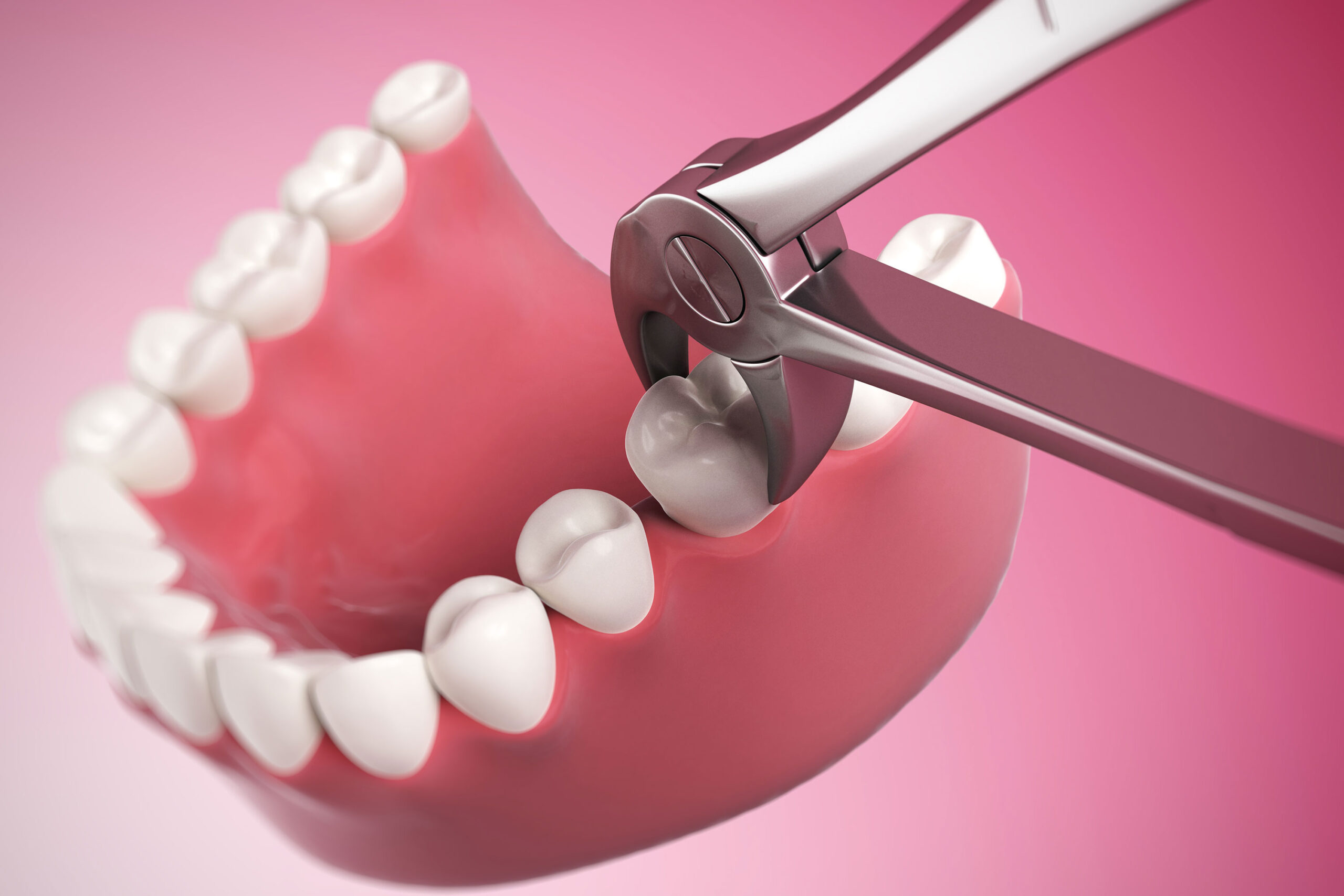Getting your teeth extracted is undeniably a painful experience, yet it becomes a necessity at times. If you have a tooth that is severely decayed, cracked, or periodontally compromised, your dentist near you will advise that you have it extracted.
Tooth Extraction Process
The extraction process will change depending on the extent of the damage and where the tooth is located. Easy and surgical extractions are the two main types of tooth extractions.
- Easy extractions are performed under local anesthesia to provide the patient with the greatest level of comfort and painlessness. The tooth is removed with the help of forceps after being sufficiently loosened.
- Surgery is usually used to remove teeth when the damage is severe and has spread to the gum line or when a wisdom tooth is impacted because it is a little more invasive. Surgical extractions are too carried out under local anesthesia. The dentist will next make exact incisions close to the gumline of the targeted tooth. To see the bone and teeth, the gums are mirrored. The tooth is then removed using special dental tools that have been utilized to loosen it. Sometimes it may be necessary to release the tooth in pieces. Sutures will be administered to you to ensure that the gums are fixed in place and that healing proceeds more effectively.
Our dentist in Sherwood Park may also use stitches if necessary to ensure normal healing.
Your dentist will examine your teeth and determine the best course of action for a quick and painless recovery. After a tooth is extracted, a gaping extraction socket is left in the jawbone and gums, which takes some time to recover.
What Is The Tooth Extraction Healing Timeline?
To ensure healthy healing after tooth extraction, proceed with extreme caution. Infections and other issues brought on by inadequate treatment might slow the healing process.
After a tooth is extracted, your gums will need some time to recover. However, as soon as the treatment is over, the healing process starts.
- A blood clot will start to form and cover the gap left by the pulled tooth within the first 24 hours following the treatment. This blood clot is important and is what causes the socket to heal. Clotting the hole prevents food particles and bacteria from getting into the open socket. It is crucial for the development of your jawbone & gums’ ability to recover.
- Following all the directions and being careful not to disturb the clot will prevent the development of a dry socket, which is a painful condition. After this time, the swelling and bleeding will stop.
- Your gums will begin to rebuild and begin the healing process on the third day.
- You will be able to see the gap in your teeth closing as gum tissues form on the seventh day. If you had stitches, they would start to come out or dissolve around this time.
- The hole will seal and your gums will heal between 14–21 days. The removal of large teeth, such as the back, and wisdom teeth, causes the greatest recovery time.
- Within a month, the gap will be fully cured without any spicules. Ultimately, replacing the jawbone with the appearance of new bone.
Tips To Follow After Tooth Extraction
- After surgery, rest for at least 24 hours to give your body time to begin mending.
- Your dentist will prescribe you some painkillers and antibiotics after having a tooth pulled. To avoid pain and infections, be careful to take them as prescribed and finish the entire course.
- Refrain from smoking.
- Avoid using a straw or spitting hard as doing so may cause the blood clot to break.
- Clean your teeth softly, practice proper oral hygiene, and avoid the area where the tooth was pulled.
- Eat soft foods.
- Use a cool ice pack in case of swelling.
Getting Tooth Extractions In Sherwood Park,
Getting tooth extractions near you will create a left in the mouth that may take several weeks to several months to close and heal. Thus, it is important to look after it.
